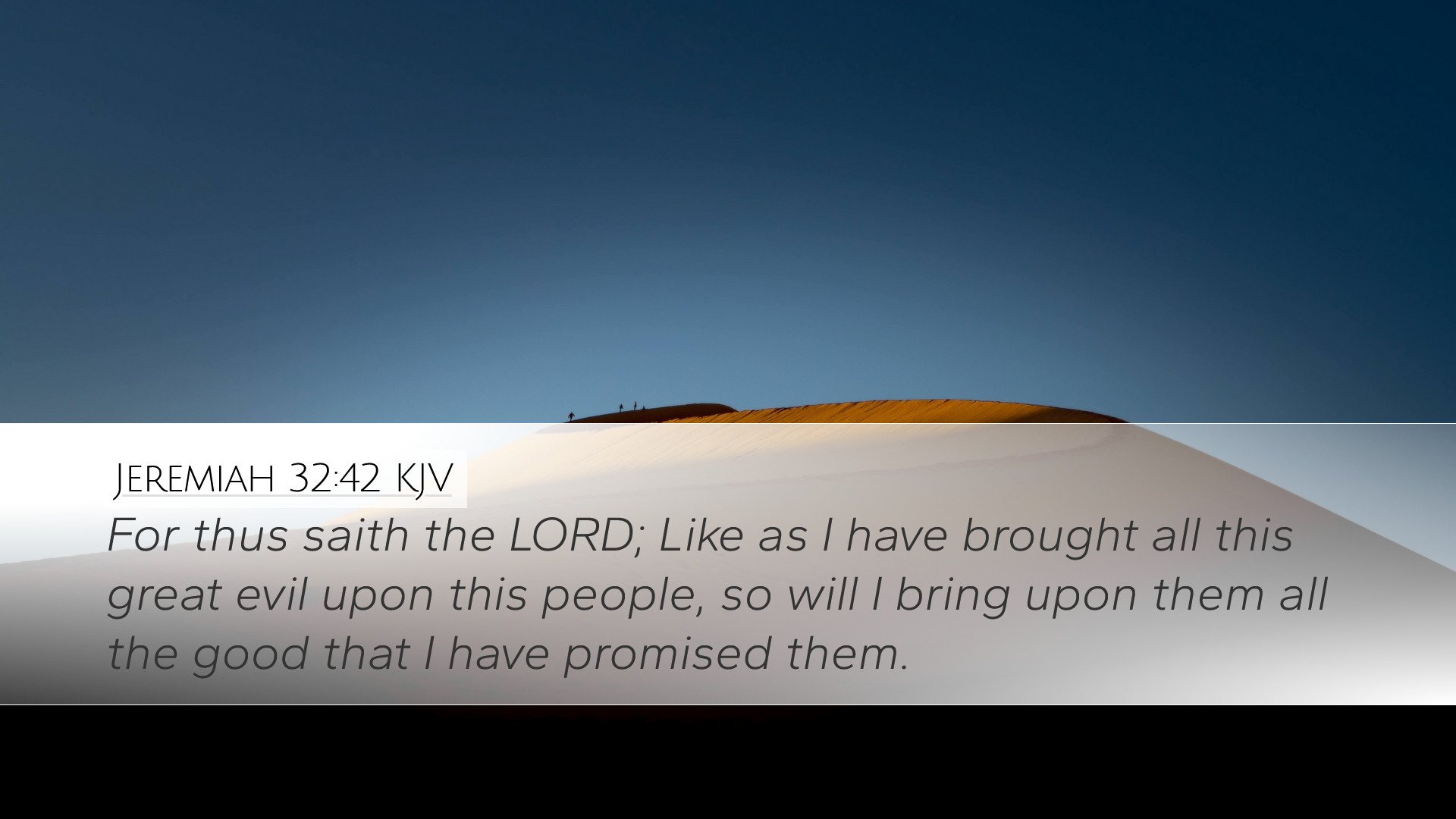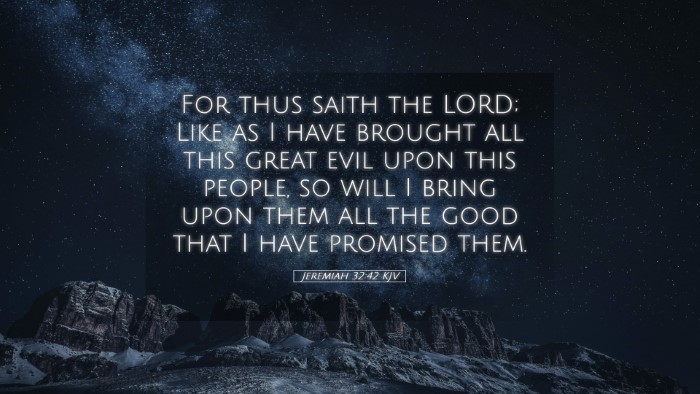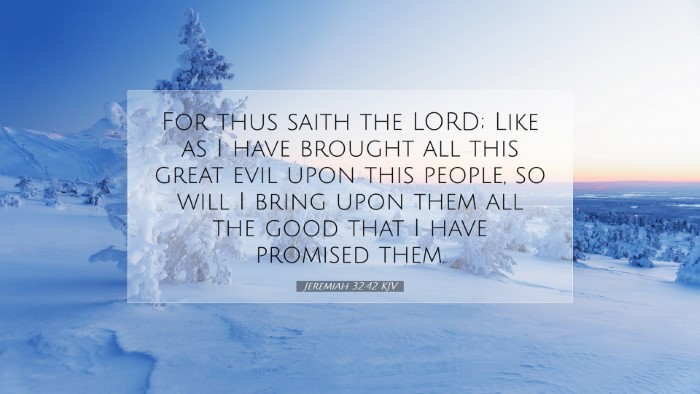Commentary on Jeremiah 32:42
Text of Jeremiah 32:42 (KJV): "For thus saith the Lord; Like as I have brought all this great evil upon this people, so will I bring upon them all the good that I have promised them."
Introduction
The verse Jeremiah 32:42 encapsulates a profound theological promise amidst a backdrop of judgment. This statement by the Lord highlights the duality of divine action: the reality of punishment as well as the assurance of restoration. This commentary synthesizes insights from public domain sources to elucidate the richness of this scripture.
The Context of Jeremiah's Prophecy
In the broader narrative of the Book of Jeremiah, the prophet is addressing a people besieged by their sins and facing imminent destruction. Matthew Henry emphasizes that God’s judgments serve a purpose, drawing His people back to repentance. Albert Barnes notes that this context of impending doom amplifies the gravity of God’s promises for future good.
God’s Sovereignty in Judgment
Divine Sovereignty: This verse begins with the affirmation "For thus saith the Lord," reinforcing God's authority over both judgment and restoration. Adam Clarke interprets that God's sovereignty ensures that the evil brought upon the people is not arbitrary but echoes His holiness and justice as a response to sin.
Purpose of Judgment: The evil that God allows is portrayed as a necessary prelude to His deliverance, serving to refine and shape the hearts of His people. Henry emphasizes that God uses calamities as instruments of correction, affirming that affliction often leads to spiritual awakening.
The Promise of Restoration
The latter part of the verse shifts from the theme of judgment to the certainty of good to come. It reflects a foundational aspect of God's character—His commitment to uphold His covenant with Israel.
- Covenantal Faithfulness: This promise echoes the covenantal theme prevalent throughout the Old Testament. Barnes highlights that God's assurances are based on His unchanging nature, promising restoration as intrinsically linked to His faithfulness.
- Hope for the Future: Clarke posits that the mention of good to come serves as a beacon of hope. Even in desolation, God's redemptive plan is at work, providing the oppressed with the assurance that there is always the prospect of salvation.
Theological Reflections
Jeremiah 32:42 is rich in implications for understanding the nature of God and His working with humanity.
- The Dual Nature of Divine Will: As both a God of justice and mercy, this passage showcases the intricate balance between divine judgment and compassion, emphasizing that God is always looking towards restoration.
- Encouragement for God’s People: In the lives of believers, this assurance speaks powerfully against despair. Henry notes that even in times of extreme turmoil and suffering, God’s promises provide a foundation for faith and endurance.
Practical Applications
This verse holds several practical implications for contemporary faith communities:
- Assurance in Trials: Believers are reminded that suffering is never without purpose. It encourages a mindset that looks beyond current struggles, understanding them as part of God's greater plan for good.
- Encouragement to Repentance: The linkage of evil and good can prompt self-examination within the church, urging communities to reflect on their walk with God and encouraging a return to righteous paths.
- Hope in Renewal: As congregations face societal challenges, this verse calls for reliance on God’s promises, fostering a culture of hope and expectation for what He will achieve in their midst.
Conclusion
Jeremiah 32:42 serves as a powerful reminder of God’s complex relationship with His people. The assurance that He will bring about all the good He has promised, even after a time of great evil, illustrates both God's sovereignty and His unfailing faithfulness. Pastors, students, and theologians can draw from this verse a rich understanding of God's character—forever committed to His people, always ready to restore, and eternally faithful to His promises.


